brand
Agbaje: Using Fairs to Redefine Retail Banking
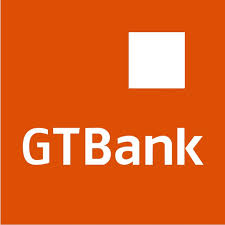
Segun Agbaje, the managing director/CEO of Guaranty Trust Bank (GTBank), is not a popular man. To many, he is aloof, too strait-laced, not your typical run-of-the-mill Nigerian. As one of Nigeria’s foremost bankers, he has a reputation for running a tight and efficient ship, is unflinching in his pursuit and recovery of loans from the country’s systemically chronic debtors who have a sense of entitlement believing that they can borrow depositors’ funds without paying back, and does not give a hoot about those critical of his take-no-prisoners approach to banking.
In the media space, he does not seek publicity, he lets his work speak for itself, could not care less if his story or photograph makes the front page of the newspapers, limits his bank’s advertising spend to what he believes is necessary to market and promote GTBank to a wider audience, and through NdaniTV and Ndani Blog understands the power of the social media in reaching out to youths that make a larger percentage of Nigeria’s and regional demographic where the bank operates.
To me, Agbaje is the ideal banker. He is not my friend and we only interact sparingly and strictly professionally as the need arises. Yet, I cannot help but wish that we had more bankers like him in this country. If we did, fewer Nigerian lenders would have to make provisions for unpardonable impairment charges on bad loans given to delinquent debtors, fewer banks would engage in reckless insider lending that threaten their capital adequacy and liquidity ratios, more banks would recognise that they have a fiduciary responsibility to manage their customers’ deposits with care, and more banks would know how to sweat their assets in the most cost-efficient manner to make the most attractive returns to their shareholders.
In all the key parameters used in defining the size of banks, GTBank, among the five Tier 1 banks in the country, is not by any stretch of imagination the biggest. In terms of total assets, loans and advances, customer deposits, number of branches, and presence on the African continent and beyond, FirstBank, Zenith Bank and United Bank for Africa (UBA) stand head and shoulders above GTBank. By Nigerian standards, the “big three” could be called banking behemoths and are very difficult to supplant. Still, GTBank, with its cost optimisation strategy, asset quality and stability ratios, among others, has over time proved to be the most profitable bank in the country. Its stock has remained the bellwether in the banking segment of the Nigerian bourse for years, signposting the confidence institutional and individual investors have in the bank.
But this article is not about GTBank’s financial performance. Its annual and quarterly reports, including those of its peers, are public documents that can be readily accessed for in-depth comparative assessment. What I have found more interesting about the bank is its focus on corporate social responsibility (CSR) and interventions in key economic sectors targeted at strengthening small businesses through not-for-profit fairs and capacity building initiatives. For two years in a row, GTBank has solely funded and hosted its Food and Drink Fair and Fashion Weekends, making them social and tourist events that feature prominently on Nigeria’s social calendar. That is not to say that the bank has not focused on other areas of CSR. Its 2016 annual report showed that GTBank spent about 58 per cent of the N449.62 million of its CSR funds on education alone while community development accounted for another 30.8 per cent.
But it is GTBank’s focus on food, drink and fashion that have been the most impactful publicly, bringing together scores of promising, talented and recognised local and international chefs and food vendors, drinks makers and merchants, fashion houses, milliners, fashion accessory designers and leather goods makers in a dizzying, well-put together and well-thought out extravaganza that leaves the public yearning for more. Both events, which are open to the public, have been attended by several thousands of people, including children, for two years running that have left attendees breathless and wondering how the bank manages to package the two fairs in areas where it has no competencies.
The trick, says Agbaje, whom I had to hound to open up on the success behind both fairs, is getting and attracting the best participants and controlling costs by getting the bank to work directly with the contractors who have to build the stalls, decorate the venue, create play areas and cooking classes exclusively for children, and provide the music, etc., during both fairs; no middlemen or consultants are used by the bank. For him, the fairs present an opportunity for GTBank to deepen its footprint in the retail banking space and increase its SME lending from 2 per cent of the bank’s loan book to 10 per cent over the next five years.
With time, he would also rather extend more loans to small and medium-sized businesses that are more impactful on the economy and achieve a loan recovery rate of 70-80 per cent, than pursue Nigeria’s so-called “big men” with woeful credit track records. Although he was demur about what it costs his bank to host both events, he was emphatic that making money at this juncture is not the overdriving objective, at least not in the short-term, but recognises the long-term benefits not just for GTBank but other Nigerian lenders.
Beyond this objective and given the magnitude of both fairs and their potential to grow into annual events that could attract millions from across the global, Agbaje’s vision is not one to be trifled with. Already, the GTBank Food and Drink Fair and the GTBank Fashion Weekend create thousands of direct and indirect jobs and referrals for hundreds of young Nigerians who have to build the stalls, decorate the venue, and provide the music, entertainment, security and other support services to make them a resounding success. And they have the potential to create even more.
Aside the suppliers, vendors and designers that make brisk business and achieve record sales during the fairs, the Master Classes included in both events are helping to build capacity and drive innovation in the creative industry that has proved to be a major magnate for Nigerian and African youths. By bringing them under one roof, GTBank has also provided a platform for shared services and given them the exposure that help these small businesses to grow and create more employment opportunities.
Without doubt, both fairs are worthy initiatives. But they could be better. In the last two years, GTBank has handled both fairs singlehandedly without support from other institutions and/or the Lagos State government, a direct beneficiary of the events and their spin-offs. In 2016, the food and drink fair alone attracted 25,000 people; this year, it attracted 75,000 people. I do not have the numbers for the bank’s fashion weekends, but I can imagine that the number of visitors will not be far off from those who attended the food and drink fairs.
Given the swelling numbers, both fairs have already started to cause traffic gridlocks on the days they are held. They are also attracting touts and hoodlums who mill around the roads leading to the venue and try to pounce on unsuspecting visitors as they alight from their cars or walk to the venue. On a positive note, big and boutique hotels, restaurants and food caterers on the Lagos Island experience an upsurge in occupancy rates and patronage by participants and the international media who have flown in to take part or cover the events. All these translate to more tourist dollars, taxes and revenue generation for the federal and Lagos State governments.
The import of this should not be lost on the federal and Lagos State governments.
They have to do more than just show a passing interest in what GTBank has started. Given the potential for both fairs to become global destinations for tourists and visitors on the African continent, Lagos State in particular needs to improve on its infrastructure in and around the venue where both fairs are held. It must improve on traffic management and security to ensure that visitors can move about with ease and feel secure. According to Agbaje, in terms of support, the state government has not yet stepped up to the plate, nor has his bank sought for any. But he does acknowledge that with time, GTBank will have to reach out to Lagos State because of the interest both fairs are generating in terms of attendance and participation.
Right now, Agbaje appears to be satisfied with what his bank has accomplished in terms of bringing both fairs to the public’s consciousness. But do the federal and state governments understand the roles that they have to play in institutionalising them and ensuring that they outlast his stewardship in GTBank? Cities like Rio de Janeiro, London, Paris, New York and Melbourne that host major sporting, fashion, carnivals, music and film festivals every year, attracting thousands of visitors do not owe their success just to corporate sponsors but to the municipalities, state and federal governments that understand their roles and lend the required support to the private sector. As such, Lagos State needs to buy into the GTBank fairs as a public-private partnership that can and should work
brand
Fidelity Bank Named “Nigeria’s Best Private Bank” at Euromoney Awards
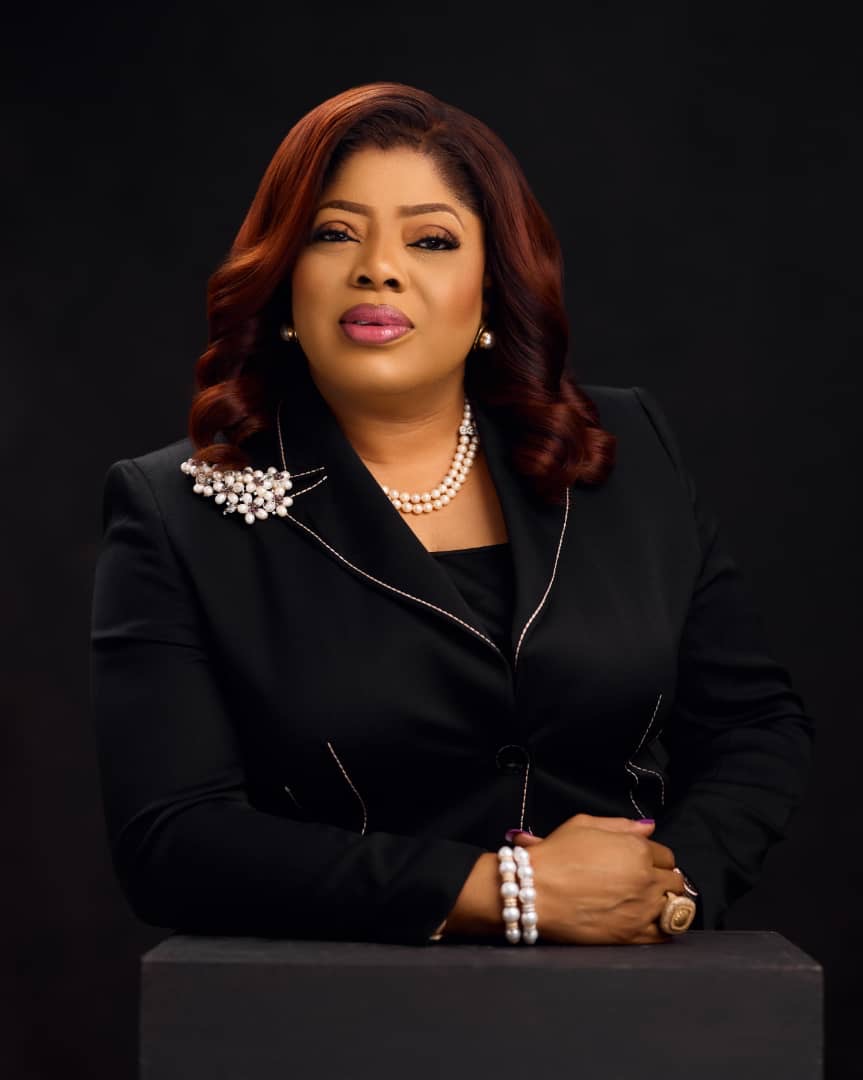
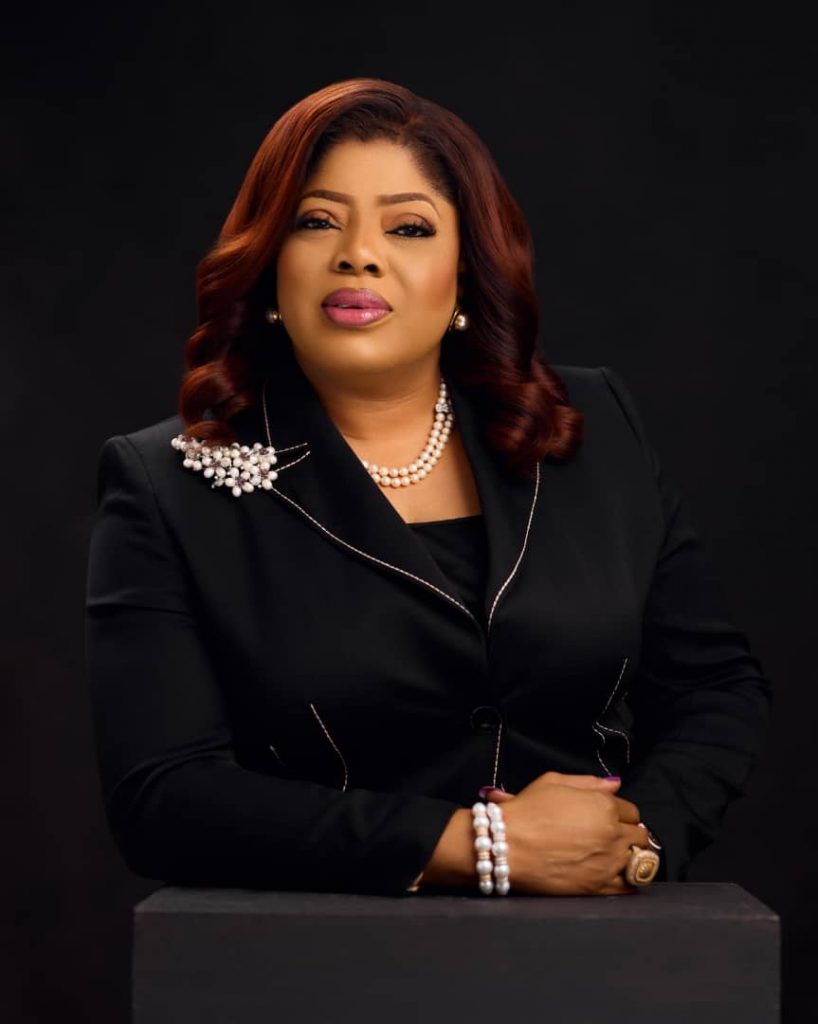 Tier one bank, Fidelity Bank PLC, has been named “Nigeria’s Best Private Bank” at the prestigious Euromoney Awards 2025. The recognition was formally unveiled at the awards ceremony held recently at The Savoy in London.
Tier one bank, Fidelity Bank PLC, has been named “Nigeria’s Best Private Bank” at the prestigious Euromoney Awards 2025. The recognition was formally unveiled at the awards ceremony held recently at The Savoy in London.
The Euromoney Awards for Excellence are prestigious annual honors and a benchmark for excellence in the global banking and finance industry. Established by Euromoney magazine, the awards highlight outstanding performance, innovation, leadership, and service excellence across various financial sectors and regions.
Commenting on the award, Managing Director and Chief Executive Officer of Fidelity Bank PLC, Dr. Nneka Onyeali-Ikpe said, “We are truly honored to be recognized by Euromoney as Nigeria’s Best Private Bank. This award is a testament to the hard work and dedication of our staff as well as our strong commitment to delivering premium wealth management solutions, personalized financial advisory, and superior client service to high-net-worth individuals in Nigeria and beyond.”
The Euromoney Awards are among the most highly respected in the global financial industry. Winning such an award for its private banking business further builds on Fidelity Bank’s growing reputation as one of Nigeria’s most trusted and customer-centric financial institutions.
According to a statement on Euromoney’s website, “The bank’s commitment to providing specialised credit solutions also sets it apart. Clients benefit from tailored lending options, including asset-backed lending, real estate financing, and customised credit facilities. These solutions are structured to support complex financial needs while ensuring flexibility and ease.”
Fidelity Bank Plc is a full-fledged commercial bank with over 9.1 million customers who are serviced across its 251 business offices and various digital banking channels in Nigeria and the United Kingdom.
The Bank is the recipient of multiple local and international Awards, including the 2024 Excellence in Digital Transformation & MSME Banking Award by BusinessDay Banks and Financial Institutions (BAFI) Awards; the 2024 Most Innovative Mobile Banking Application award for its Fidelity Mobile App by Global Business Outlook, and the 2024 Most Innovative Investment Banking Service Provider award by Global Brands Magazine. Additionally, the Bank was recognized as the Best Bank for SMEs in Nigeria by the Euromoney Awards for Excellence and as the Export Financing Bank of the Year by the BusinessDay Banks and Financial Institutions (BAFI) Awards.
brand
Access Holdings Records 88% Growth in Gross Earnings to N4.878 Trillion

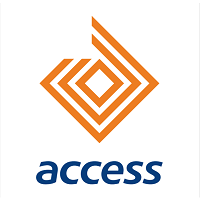 Access Holdings PLC (“the Group”) (Bloomberg: ACCESSCO), a leading African financial services group, today, announced its audited financial results for the full year ended December 31, 2024. The Group delivered 88% year-on-year growth in gross earnings, rising from N2.594 trillion in 2023 to N4.878 trillion in 2024. The strong performance was driven by diversified income streams, with interest income growing by 110% to N3.480 trillion and non-interest income increasing by 47.8% to N1.397 trillion, supported by robust retail banking activities, digital expansion, and a dynamic trading strategy.Profit before tax (PBT) increased by 19% to N867.0 billion, while profit after tax (PAT) rose to N642.2 billion, despite inflationary and macroeconomic challenges. Total assets grew by 55.5% to N41.498 trillion, and customer deposits rose by 47% to N22.525 trillion. Shareholders’ funds also increased by 72%, reaching N3.760 trillion.In 2024, the Group made significant social and environmental impact across the continent, touching millions of lives and earning multiple industry accolades. Through various corporate social investment initiatives in education, entrepreneurship, health, and the environment, the Group reached over 21 million individuals across Africa. Its employee wellness programmes also covered 28,000 staff across operating entities. Access Bank, the flagship subsidiary, through its W-Initiative, disbursed loans to over a million women-led SMEs, advancing financial inclusion and gender empowerment.The Group’s efforts attracted prestigious recognition and awards, including three Euromoney Awards for Excellence (notably ‘Best Bank for ESG’); International Finance Award for ‘Most Innovative Bank for Community Development and Community Engagement’; and World Economic Magazine Award for ‘Most Sustainable Bank’.In terms of economic sustainability, Access Bank recorded strong strides through its Economic, Social and Governance (ESG) programmes. It facilitated $437.42 million in DFI inflows to support MSMEs across Africa, disbursed 1.6 million digital loans to low-income individuals, and booked its first N1.4 billion diaspora mortgage loan.The Group also achieved a 13.4% reduction in operational emissions, planted 57,302 trees, and enabled solar power adoption for 226 homes and businesses. Its headquarters was awarded the IFC EDGE (Excellence in Design for Greater Efficiencies) Green Building Certification for sustainable design and construction
Access Holdings PLC (“the Group”) (Bloomberg: ACCESSCO), a leading African financial services group, today, announced its audited financial results for the full year ended December 31, 2024. The Group delivered 88% year-on-year growth in gross earnings, rising from N2.594 trillion in 2023 to N4.878 trillion in 2024. The strong performance was driven by diversified income streams, with interest income growing by 110% to N3.480 trillion and non-interest income increasing by 47.8% to N1.397 trillion, supported by robust retail banking activities, digital expansion, and a dynamic trading strategy.Profit before tax (PBT) increased by 19% to N867.0 billion, while profit after tax (PAT) rose to N642.2 billion, despite inflationary and macroeconomic challenges. Total assets grew by 55.5% to N41.498 trillion, and customer deposits rose by 47% to N22.525 trillion. Shareholders’ funds also increased by 72%, reaching N3.760 trillion.In 2024, the Group made significant social and environmental impact across the continent, touching millions of lives and earning multiple industry accolades. Through various corporate social investment initiatives in education, entrepreneurship, health, and the environment, the Group reached over 21 million individuals across Africa. Its employee wellness programmes also covered 28,000 staff across operating entities. Access Bank, the flagship subsidiary, through its W-Initiative, disbursed loans to over a million women-led SMEs, advancing financial inclusion and gender empowerment.The Group’s efforts attracted prestigious recognition and awards, including three Euromoney Awards for Excellence (notably ‘Best Bank for ESG’); International Finance Award for ‘Most Innovative Bank for Community Development and Community Engagement’; and World Economic Magazine Award for ‘Most Sustainable Bank’.In terms of economic sustainability, Access Bank recorded strong strides through its Economic, Social and Governance (ESG) programmes. It facilitated $437.42 million in DFI inflows to support MSMEs across Africa, disbursed 1.6 million digital loans to low-income individuals, and booked its first N1.4 billion diaspora mortgage loan.The Group also achieved a 13.4% reduction in operational emissions, planted 57,302 trees, and enabled solar power adoption for 226 homes and businesses. Its headquarters was awarded the IFC EDGE (Excellence in Design for Greater Efficiencies) Green Building Certification for sustainable design and construction
standards.In addition, Access employees contributed 228,500 volunteer hours to various community development programmes, reinforcing the Group’s commitment to inclusive and purpose-driven impact.The Group is focused on delivering sustainable returns to shareholders, while reinvesting in innovation, infrastructure, and cross-border expansion. Its banking subsidiary launched operations in Hong Kong, received regulatory approval in Malta, and successfully integrated its operations in Zambia and Tanzania, expanding its global footprint.Access Bank posted significant gains across all performance metrics, with interest income growing by 110% and fees and commissions rising by 81%. International subsidiaries contributed 48.5% to the banking segment’s PBT, demonstrating strong execution across key markets.In 2024, Access Holdings also became the first institution to meet the Central Bank of Nigeria’s recapitalisation directive, raising 351 billion through a rights issue. The₦ proceeds are being strategically deployed to strengthen digital infrastructure, enhance liquidity, and fuel long-term growth.Looking ahead, Access Holdings remains committed to building a more inclusive, sustainable, and profitable future, delivering delivering value not just to shareholders, but to society and the environment at large.
brand
JIM OVIA ADMITTED TO THE FREEDOM OF THE CITY OF LONDON
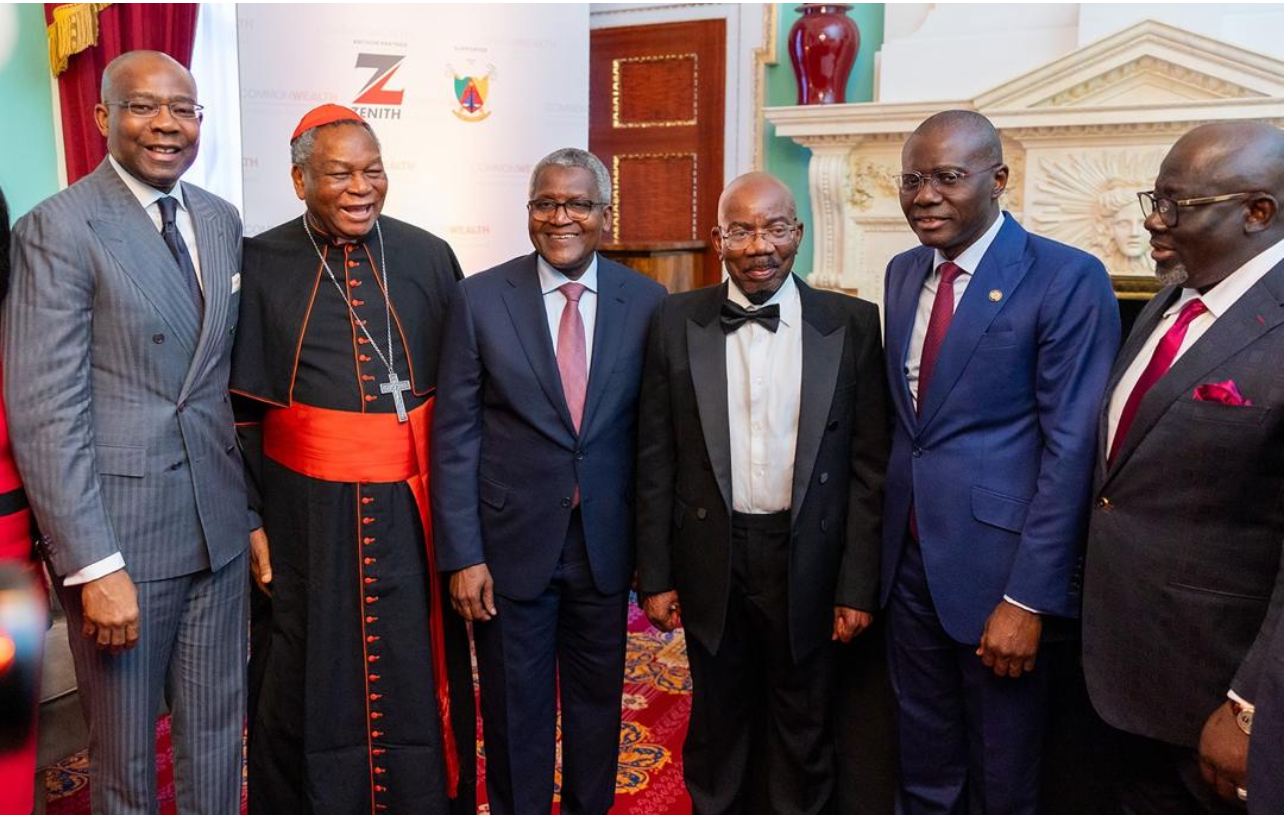
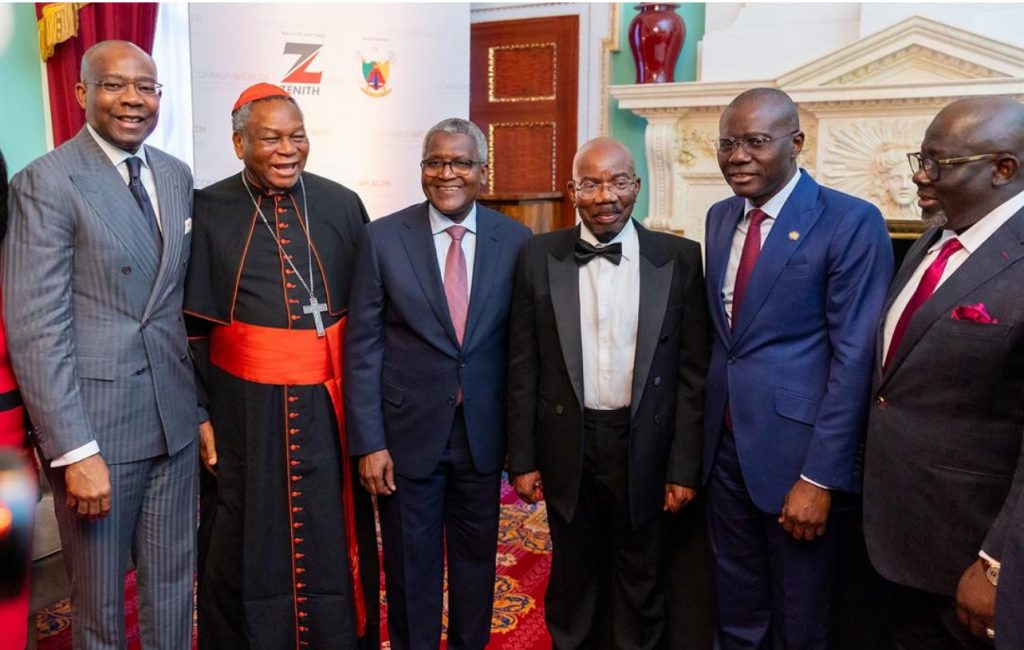 L-R: Chairman, Access Holdings Plc, Aigboje Aig-Imoukhuede, CFR; His Eminence John Cardinal Onaiyekan; President of Dangote Group, Alhaji Aliko Dangote, GCON; Founder and Chairman of Zenith Bank Plc, Jim Ovia, CFR; Governor of Lagos State, Mr. Babajide Sanwo-Olu; and Governor of Delta State, Rt.Hon. (Elder) Sherrif Oborevwori, during the admission of Jim Ovia to the Freedom of the City of London in the United Kingdom, on Monday.
L-R: Chairman, Access Holdings Plc, Aigboje Aig-Imoukhuede, CFR; His Eminence John Cardinal Onaiyekan; President of Dangote Group, Alhaji Aliko Dangote, GCON; Founder and Chairman of Zenith Bank Plc, Jim Ovia, CFR; Governor of Lagos State, Mr. Babajide Sanwo-Olu; and Governor of Delta State, Rt.Hon. (Elder) Sherrif Oborevwori, during the admission of Jim Ovia to the Freedom of the City of London in the United Kingdom, on Monday.
The Founder and Chairman of Zenith Bank Plc, Jim Ovia, CFR, has been admitted to the prestigious Freedom of the City of London in a distinguished ceremony which held at the Mansion House, City of London on Monday, April 7, 2025. This prestigious accolade is a testament to Mr. Ovia’s exceptional contributions to the global financial landscape, unwavering commitment to fostering economic development, and dedication to philanthropic endeavours that have positively impacted countless lives.The Freedom of the City of London, a time-honoured tradition dating back to the 13th century, is one of the oldest surviving ceremonies in the United Kingdom. Historically, it granted freemen certain rights and privileges within the city. Today, it stands as a symbolic recognition of individuals who have made outstanding contributions to London or the wider society. This honour places Mr. Ovia among a distinguished group of recipients, which includes notable figures from various fields such as Nelson Mandela, Bill Gates, Sir Winston Churchill, Desmond Tutu, Harry Kane, Morgan Freeman and Ian Wright.Commenting on his new status as a Freeman of the City of London, the distinguished honoree, Jim Ovia, CFR said “It is indeed a great honour to be admitted to the prestigious Freedom of the City of London. This is not just a recognition of my personal achievements, but also a testament to the tireless efforts of the entire Zenith team who have worked diligently to establish our institution as a leading force in global finance. I am proud to be part of a legacy that celebrates innovation, excellence and the spirit of entrepreneurship. I dedicate this to the people of Nigeria and Africa who continue to inspire me with their resilience and determination. I look forward to continuing to play a role in shaping the economic landscape of our great continent and beyond.”Joining the nation in congratulating Mr. Ovia, President Bola Tinubu, through a press statement by the Special Adviser to the President on Information and Strategy, Bayo Onanuga, commended Mr. Ovia for being a distinguished ambassador of the nation’s private sector. He described the honour as a fitting recognition of his exceptional contributions to business, innovation, and technology, as well as for his role in shaping Nigeria’s financial landscape and strengthening economic ties between Africa and the rest of the world. According to him, “This honour is a testament to your unwavering commitment to excellence, your pioneering role in the growth of the financial services sector in Nigeria, and your visionary leadership that continues to inspire generations. As an accomplished entrepreneur and advocate of innovation-driven development, your recognition in the City of London affirms the global relevance of Nigerian excellence and enterprise”.Dignitaries at the ceremony include Former President of Nigeria, Chief Olusegun Obasanjo, GCFR; Governor of Lagos State, Mr. Babajide Sanwo-olu; Governor of Delta State, Rt.Hon. (Elder) Sherrif Oborevwori; Governor of Enugu State, Dr. Peter Mbah; President of Dangote Group, Alhaji Aliko Dangote, GCON; Minister of State for Finance, Dr. Doris Uzoka-Anite; Minister of Industry, Trade and Investment, Dr. Jumoke Oduwole, MFR; Minister of State for Foreign Affairs, Bianca Odumegwu-Ojukwu; Oba of Oniru, Oba Abdulwasiu Lawal; Group Managing Director, TGI Group of Companies, Rahul Savara; Obi of Onitsha, Igwe Nnaemeka Alfred Achebe, CFR, and His Eminence John Cardinal Onaiyekan, who joined Zenith Bank Executives in celebrating this significant milestone.This well-deserved recognition rides on the back of many other prestigious awards that Mr. Ovia has received for his outstanding contributions to banking, education and philanthropy including conferment of Commander of the Federal Republic (CFR) & National Productivity Order of Merit (NPOM) Award in 2022 by the Federal Government of Nigeria. He was also named the Banker of the Year in 2007 and Titan of the year in 2024 by ThisDay Newspaper, and received the African Business Leader Award from the Africa-America Institute. He received honorary degrees from the University of Lagos as well as from the University of Nigeria, Nsukka and was recognized by Forbes Africa as one of the most influential figures in banking.
-

 news5 years ago
news5 years agoUPDATE: #ENDSARS: CCTV footage of Lekki shootings intact – Says Sanwo – Olu
-

 news3 weeks ago
news3 weeks agoBreaking : TInubu appoints Bashir Ojulari as new CEO group of NNPC and GMD mele kyari get sacked, Says Onanuga
-

 news1 year ago
news1 year agoEnvironmental Pollutions : OGONI COMMUNITY CRIES OUT, THREATENS TO SHUT DOWN FIRSTBANK,SHELL OIL COMPANY OPERATIONS FOR NOT PAYING COURT AWARD
-

 interview3 weeks ago
interview3 weeks agoNIGERIA MECHANIZED AGRO EXTENSION SERVICE PROJECT, A STRATEGIC MOVE TO ALLEVIATE POVERTY – DR. AMINU ABDULKADIR
-

 news4 weeks ago
news4 weeks agoUpdate : Fubara ordered bombing of Rivers Assembly, I am not under duress I resigned, Says ex-Rivers HoS Nwaeke
-
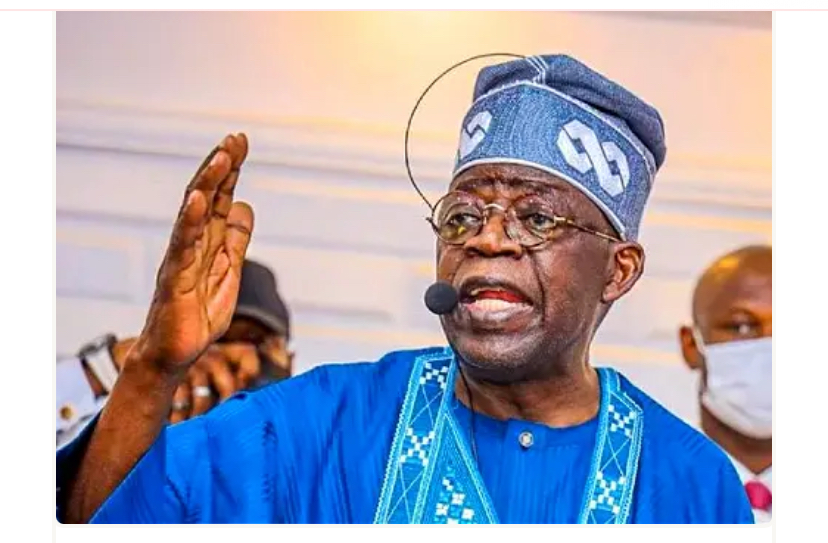
 news1 week ago
news1 week agoNothing new in FBI report on Tinubu, says Onanuga
-
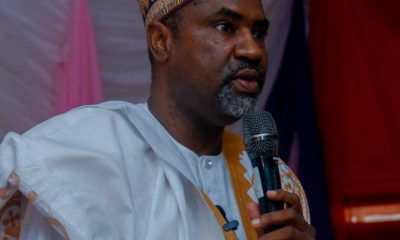
 news1 week ago
news1 week agoAirlin Advocacy Commissions Jos Office, Targets 7m Members By Next Elections,Says Mohammed Gamawa
-

 news3 weeks ago
news3 weeks agoTinubu commended Nandap for her leadership, extends Comptroller-General tenure till 2026, says Onanuga


